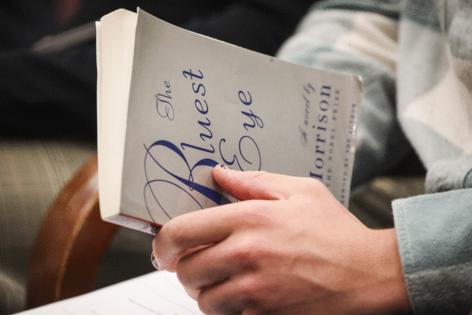Florida law restricting school books is unconstitutional, judge rules
Published in News & Features
U.S. Judge Carlos Mendoza ruled against state efforts to restrict school books and materials that “describe sexual conduct,” saying the standard was too broad and vague. The 2023 law has led to the removal of thousands of books from school libraries.
The 50-page order, which is likely to be appealed, takes issue with several aspects of the government’s arguments. Here are a couple of note.
First, lawyers for the state argued that the curation of library materials is government speech. Mendoza was not persuaded.
“A blanket content-based prohibition on materials, rather than one based on individualized curation, hardly expresses any intentional government message at all,” he wrote at the end of a lengthy discussion. “Slapping the label of government speech on book removals only serves to stifle the disfavored viewpoints.”
The judge also raised concerns about the effort to tag any reference to sexual conduct as “pornography.” Among the problems with that, he said, is that the law lacks clear definitions.
“As Plaintiffs note, it is unclear what the statute actually prohibits. It might forbid material that states characters ‘spent the night together’ or ‘made love.’ Perhaps not. Defendants do not attempt to explain how the statute should work,” Mendoza wrote, also stressing the importance of judging the material’s value as a whole.
The judge additionally found the statute has led to the unconstitutional removal of non-obscene books — including some of the titles that Department of Education officials recently told school districts to pull off their shelves.
“The following books, among others, have been removed: The Color Purple, Half of a Yellow Sun, Cloud Atlas, The Splendid and the Vile, I am Not Your Perfect Mexican Daughter, The Freedom Writers Diary: How a Teacher and 150 Teens Used Writing to Change Themselves and the World Around Them, On the Road, Nineteen Minutes, Paper Towns, Looking for Alaska, How the García Girls Lost Their Accents, The Kite Runner, Slaughterhouse-Five, Shout, Last Night at the Telegraph Club, The Handmaid’s Tale, Native Son, Kaffir Boy: The True Story of a Black Youth’s Coming of Age in Apartheid South Africa, Water for Elephants, Beloved, Song of Solomon, The Bluest Eye, and Homegoing,” he wrote.
“None of these books are obscene.”
The plaintiffs cheered the ruling.
“We are especially heartened that the Court rejected the State’s dangerous claim that the First Amendment does not apply in school libraries,” Penguin Random House said in a released statement. “The Court also struck down the State’s vague ‘I know it when I see it’ standard, reinforcing the essential role of librarians and educators in selecting books for students’ independent reading.” Read the complete ruling here.
_____
©2025 Tampa Bay Times. Visit tampabay.com. Distributed by Tribune Content Agency, LLC.







Comments